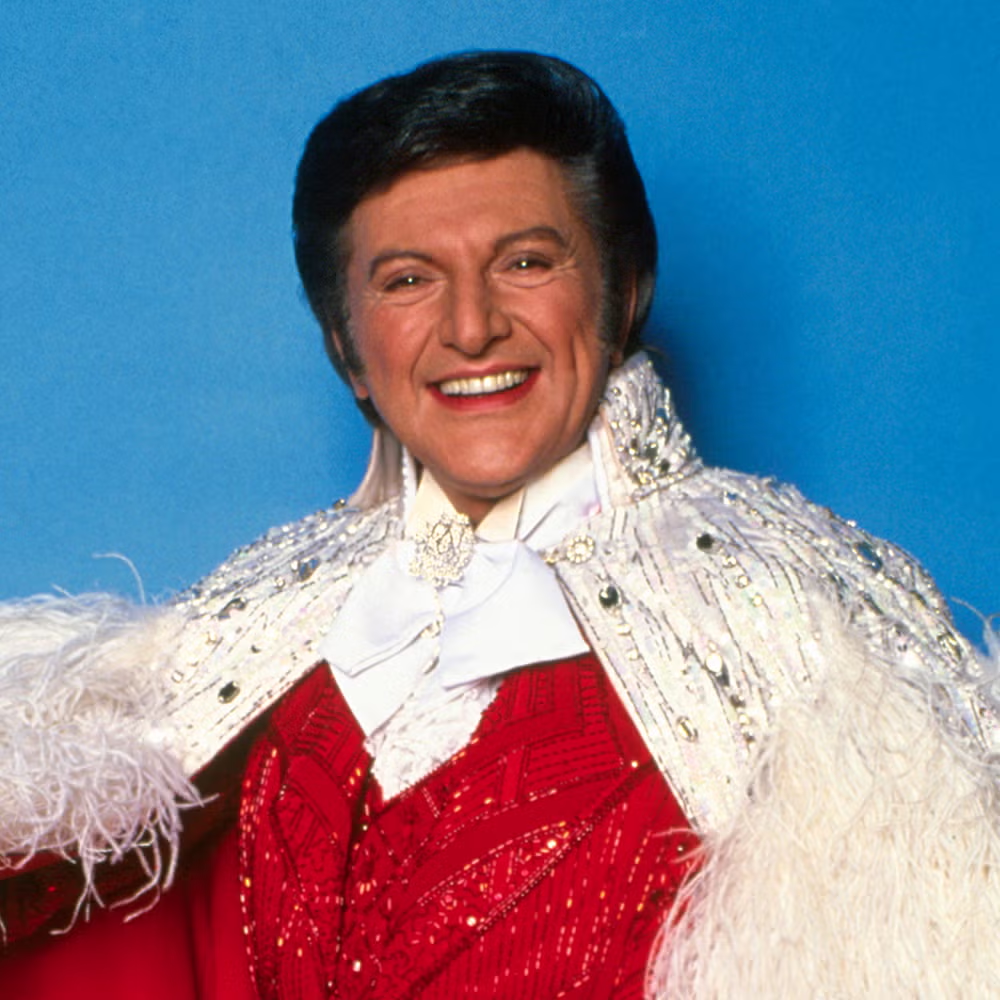
Table of Contents
Who Was Liberace?
Liberace, an iconic entertainer of the 20th century, first showcased his remarkable talent as a soloist with the Chicago Symphony Orchestra at the age of 16. He later gained widespread acclaim for his distinctive performances, which featured elaborate costumes, ornate pianos, and candelabra, and focused primarily on popular music. His success extended to television, where he hosted The Liberace Show from 1952 to 1955 and again in 1969. Additionally, he appeared in films such as Sincerely Yours (1955). Known for his unique combination of classical training and extravagant showmanship, Liberace achieved significant fame and continued to perform frequently in Las Vegas throughout his later years.
Early Life
Wladziu Valentino Liberace was born on May 16, 1919, in West Allis, Wisconsin. His middle name was inspired by one of his mother’s favorite film stars, Rudolph Valentino, a name that would later symbolize Liberace’s own rise to fame.
Both of Liberace’s parents had a strong interest in music, which influenced his early development. He began piano lessons at a very young age, demonstrating prodigious talent. By the age of seven, he was already enrolled at the Wisconsin College of Music. Liberace’s exceptional skills led him to perform with orchestras during his early teenage years.
Musical Sensation
Liberace began his career performing in movie theaters and nightclubs, adopting the stage name “Walter Busterkeys” early on. He initially found modest success by blending classical music with contemporary tunes. His major breakthrough came in 1951 with the debut of The Liberace Show, which first aired locally in Los Angeles before achieving national prominence.
At its peak, the program attracted 35 million viewers, captivated by Liberace’s exceptional piano skills and charismatic presence. His signature candelabra, placed atop his piano, became a hallmark of his performances. His large, predominantly female audience was also charmed by his deep devotion to his mother, Frances, and his brother George, who played the violin and served as the show’s orchestral arranger.
Beyond television, Liberace enjoyed immense success in live performances and recorded millions of records. His talents were further showcased in the 1955 film Sincerely Yours. In Las Vegas, he emerged as one of the city’s top entertainers and highest-paid stars, renowned for both the opulence of his shows and his extravagant costumes. Notably, he shared the stage with Elvis Presley in 1956.
During this period, Liberace faced legal challenges related to his personal life. He was subject to public scrutiny and legal disputes over his sexuality, including a libel case against a British publication that suggested he was gay. Despite winning these legal battles, Liberace maintained a public facade to preserve his largely female audience.
Although the popularity of his television show waned over time, Liberace’s live performances continued to draw large crowds. His shows became increasingly elaborate, characterized by ornate, piano-shaped rings, lavish fur capes, and dramatic entrances in luxury automobiles. In the mid-1970s, Liberace opened his Hollywood home to the public as a museum, later expanding to display his collection of costumes, cars, and other treasures in Las Vegas.
Final Years and Passing
In the final years of his life, Liberace faced a legal dispute with his former bodyguard and chauffeur, Scott Thorson. In 1982, Thorson filed a lawsuit alleging that he had been in a personal relationship with Liberace, who had purportedly promised to provide for and support him. The case was eventually settled out of court.
Before his death, rumors circulated suggesting that Liberace was suffering from AIDS, though he and his staff strongly refuted these claims. Liberace passed away on February 4, 1987, at his residence in Palm Springs, California. Initially, his doctor reported that he had died from cardiac arrest. However, an autopsy conducted by the Riverside County coroner later revealed that the cause of death was actually AIDS-related pneumonia.
Legacy and Film
Despite some critics characterizing him as overly sentimental, Liberace’s influence on the entertainment industry endures. His opulent and often flamboyant style has significantly impacted prominent figures such as Elvis Presley, Elton John, and David Bowie. In 2013, a film was released that honored Liberace’s legacy, with Michael Douglas portraying the iconic showman.
